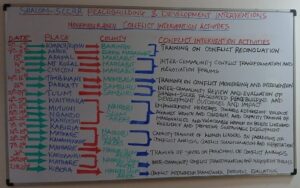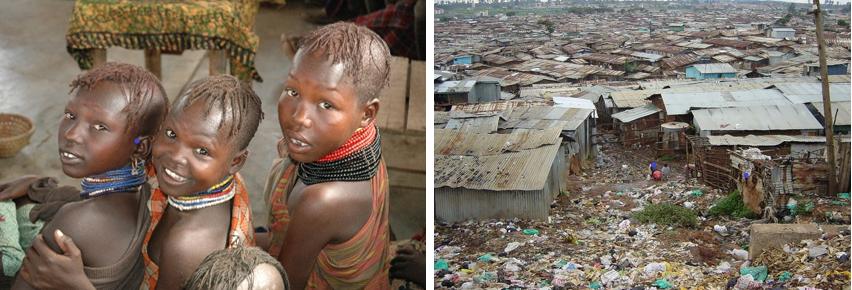
‘‘Educating girls reduces the number of child marriages and crisis early pregnancies, among other issues and improves the overall socio-economic circumstances of young girls in marginalised and vulnerable pastoral communities who are subjected to numerous forms of violence. Not only do they suffer inflictions on the basis of gender but also social and cultural discrimination especially in the provision of education and participating in livelihood activities” – Judy Akedi, who works in Nairobi informal urban settlements (slums).
UN Secretary General, Kofi Annan, said on 9 April 2003: “To educate girls is to reduce poverty. That is the lesson that unites us today. We come to this lesson well prepared. Study after study has taught us that there is no tool for development more effective than the education of girls. No other policy is as likely to raise economic productivity, lower infant and maternal mortality, improve nutrition and promote health — including the prevention of HIV/AIDS. No other policy is as powerful in increasing the chances of education for the next generation. And yet, out of the millions of children in the world who are not in school, the majority are girls.”
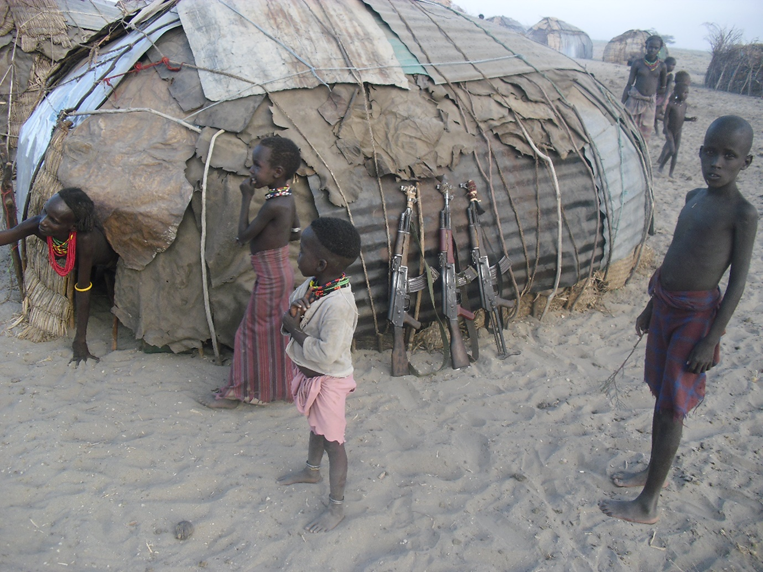
As we celebrated International Women’s Day this week, (https://shalomconflictcenter.org/happy-international-womens-day-2/) there is an urgent need to prevent violence against the girl-child, and to transform perceptions and behaviour that promote such violence. The establishment of social care institutes addressing violence against women and children, both for the girl-child and the boy-child, was never more needed.
In the recent visit to Shalom-SCCRR in Nairobi by Chief Lazaraus from Ilemi Triangle (https://shalomconflictcenter.org/lazarus-epae-ereng-assistant-chief-nachukui-turkana-county-attests-to-shaloms-impact-peacebuilding-dividents-along-the-kenya-ethiopia-border/), he said: “girls at secondary school are less in numbers due to culture traditions, the covid-19 pandemic has also made it worse, as many girls have become pregnant”.
Establishing well equipped learning environment for the girls; monitoring enrolment, retention and performance

Esther Kibe, who works in Northern Kenya highlights that: “cultural traditional practices such as female genital mutilation (FGM) and pre-arranged early marriages frequently results in early teenage pregnancies in turn hindering these young girls from acquiring formal education. These teenage girls are then ushered into motherhood while their age mates in other parts of the nation continue attaining their education. As such an opportunity to transform their lives and that of their communities is impeded, often with severe consequences”.
According to the Kenya Data and Health Survey, 2014 over 13,000 teenage girls drop out of school annually because of pregnancy (https://ncpd.go.ke/teenage-pregnancy-in-kenya/)
This statistic has led to the relevant stakeholders from the national and county governments re-evaluating these girls ‘return-to-school’ or school re-entry policies.
Promoting community support for the education of the girl-child
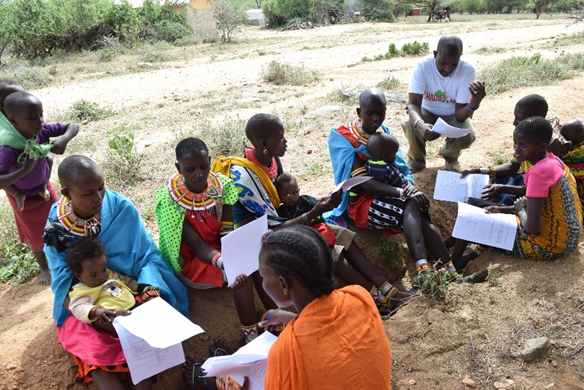
This is a very common phenomenon in pastoral communities where Shalom-SCCRR works. ‘Young and vulnerable girls are seen as a source of livestock replenishment and hence are married off at an early age in order to get dowry. Lack of opportunity to get education has resulted into high levels of illiteracy among many young girls despite the Kenyan government ratifying all the key international conventions that promote the rights of children’’ according to Joyce Wamae.
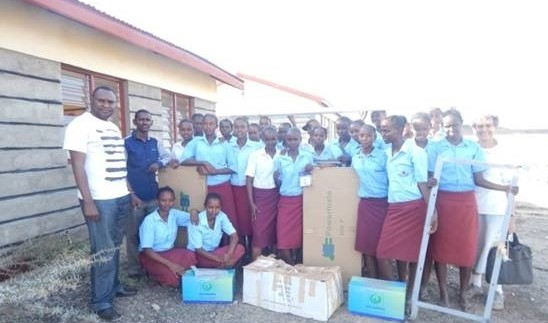
Promoting safety and security of girls through school boarding
Shalom-SCCRR is improving the access and participation of girls and women in education. Education is one effective way of combating early marriage, promoting empowerment and reducing violence in these marginalised areas. It is foundational to Conflict Transformation and Peace-building.
Rosaline Serem, who helps with the facilitation of education projects in remote marginalized areas emphasizes: “Shalom-SCCRR through its education and development strategy is providing boarding facilities and amenities such as construction of dormitories, beds and mattresses to schools so as to prevent girls from travelling long and unsafe distances for education. The boarding facilities in these schools also provide the girls with enough time and security to concentrate on their studies leading to improved performance in their education formation and increased enrolment of the girl child”.

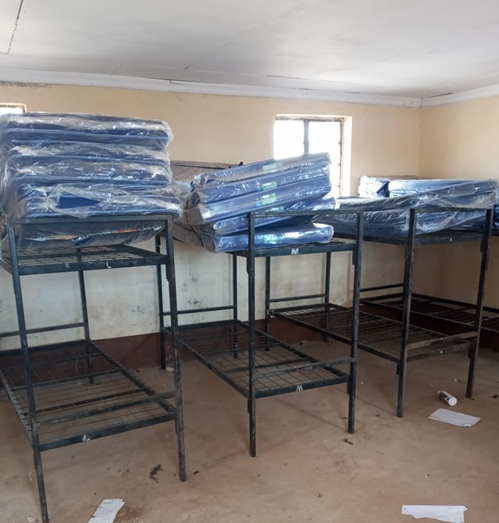
During the past 10 years through our education development projects over 73,748 girls from 28 conflict zones have received educational opportunities and benefitted immensely.
According to Emmanuel Lenyumba, Shalom-SCCRR Peace Club Patron, Arapal Primary School: “Through the provision of teaching and learning materials by Shalom-SCCRR, we have registered increased enrolment and retention of pupils and teachers as well as improved performance in our school”.
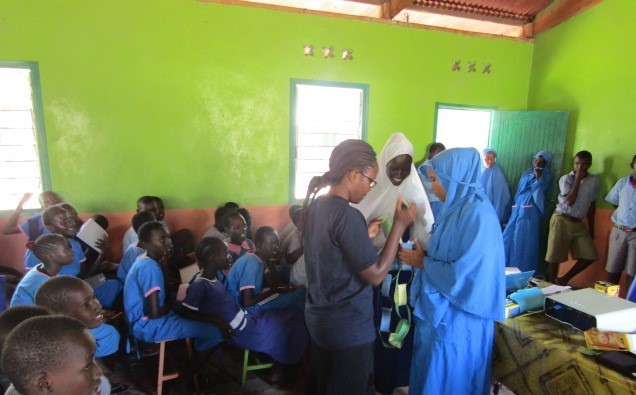
Mr. Jacob Naikele, Loiyangalani Primary School Head Teacher in a consultation with Esther Kibe on the impact of Shalom-SCCRR support to the school stated: ‘‘The improved boarding facilities in our school are gradually transforming the mind-set of parents in the community and they are more willing to allow their girls to board in school with other students. In the past this was not acceptable but we are witnessing a change, thanks to the support Shalom-SCCRR is providing’’.
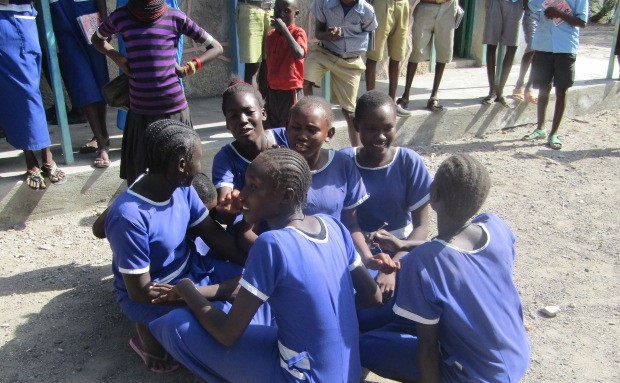
Renewing the Hopes of rejected girls
A hope center in Marsabit that was established to accommodate girls with crisis pregnancies, orphans and physically challenged children who are rejected by their communities is supported by Shalom-SCCRR. Through this support, 21 children and 5 mothers are assisted at the moment. As part of our Covid-19 interventions the center received health equipment such as sanitizers, masks, soaps and pampers to safeguard expectant girls and their new-borns.
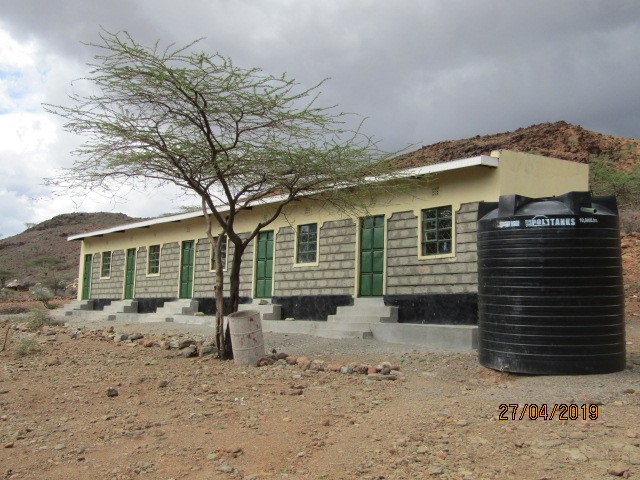
Improving the girls’ menstrual hygiene
Shalom-SCCRR is consistently contributing to the girl-child’s future by also ensuring girls remain in schools despite being from impoverished backgrounds.
“Period / menstrual poverty is prevalent among communities in Eastern Africa and has led to many girls shying off through shame and opting to drop out from school. The provision of sanitary towels in these schools ensures that the young girls can access this important necessity for the betterment of their health and well-being” says Symprose Lokaru, the chairlady of the Board of Management of Loreng’kippi Primary School, Turkana.
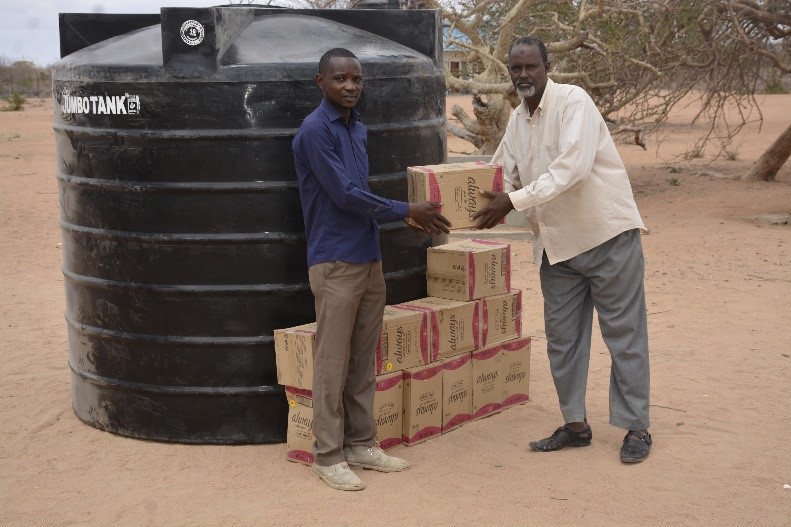
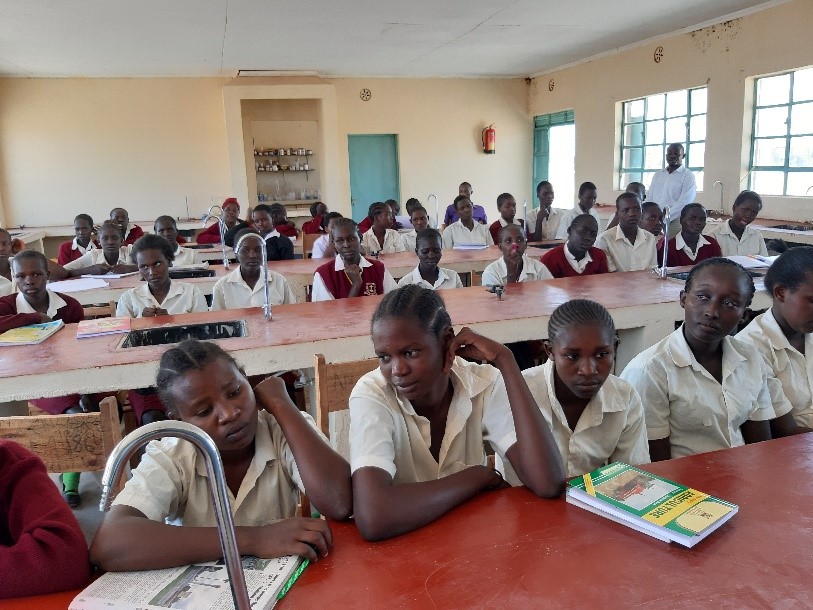
Girls empowered to promote peace in their community
According to a report by the Global Partnership for Education in May 2019, conflict compounds the challenges girls face in education. The report stated: “Globally, girls are almost two and a half times more likely to be out of school if they live in countries affected by conflict, and young women are nearly 90 percent more likely to be out of secondary school than their counterparts in countries not affected by conflict. Girls also make up a sizable number of the refugee population in some regions, with a growing feminization of displacement.” Education is foundational in resolving conflict and building sustainable peace. Young people, particularly girls, are key to building sustainable communities into the future.
Shalom-SCCRR’s peace education strategy focuses on providing peace education syllabus to school going children. These children have experienced and lived in areas entrenched with violent conflict throughout their lives and hence a need to inculcate and nurture a culture of peace. Through this strategy over 4,653 girls from different primary and secondary schools in different project areas have received specific specialized trainings. Shalom-SCCRR continues to empower young, vulnerable and marginalised girls/women across Eastern Africa with knowledge and skills to transform their future and make a substantial difference in their communities. Please join and donate to their safeguarding processes.
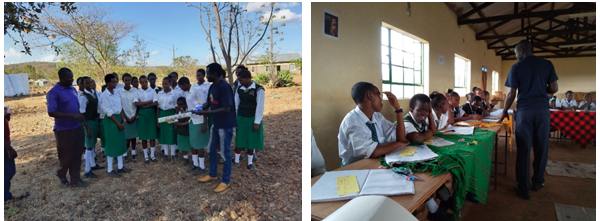
“With this support from Shalom-SCCRR our story moves from desperation to hope” says Ms. Rose Losike, Principal of Morijo Mixed Secondary School.
Shalom-SCCRR is dependent on donations to continue its vital work in peace-building and supporting the work of girl education throughout Eastern Africa. You can support this work now by making a donation at https://shalomconflictcenter.org/, or by organising a fundraising event. You can be part of our team too.
By:
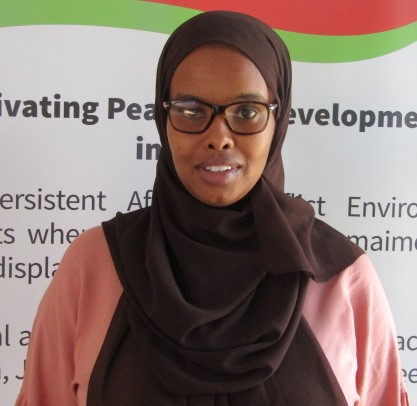
Asha Said Awed, MA.
Program Assistant (Nairobi, Marsabit & Turkana-West Pokot Projects)
Shalom Center for Conflict Resolution and Reconciliation (SCCRR)
Share this story

